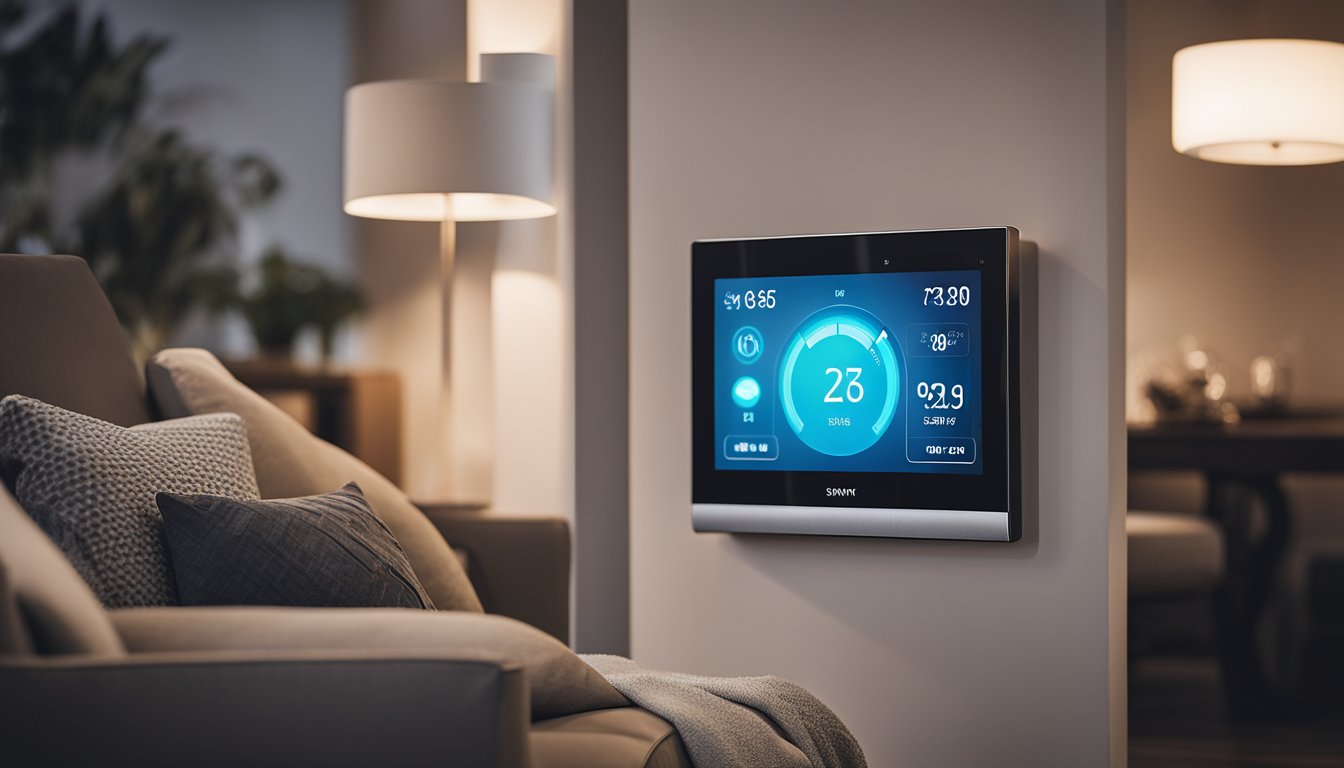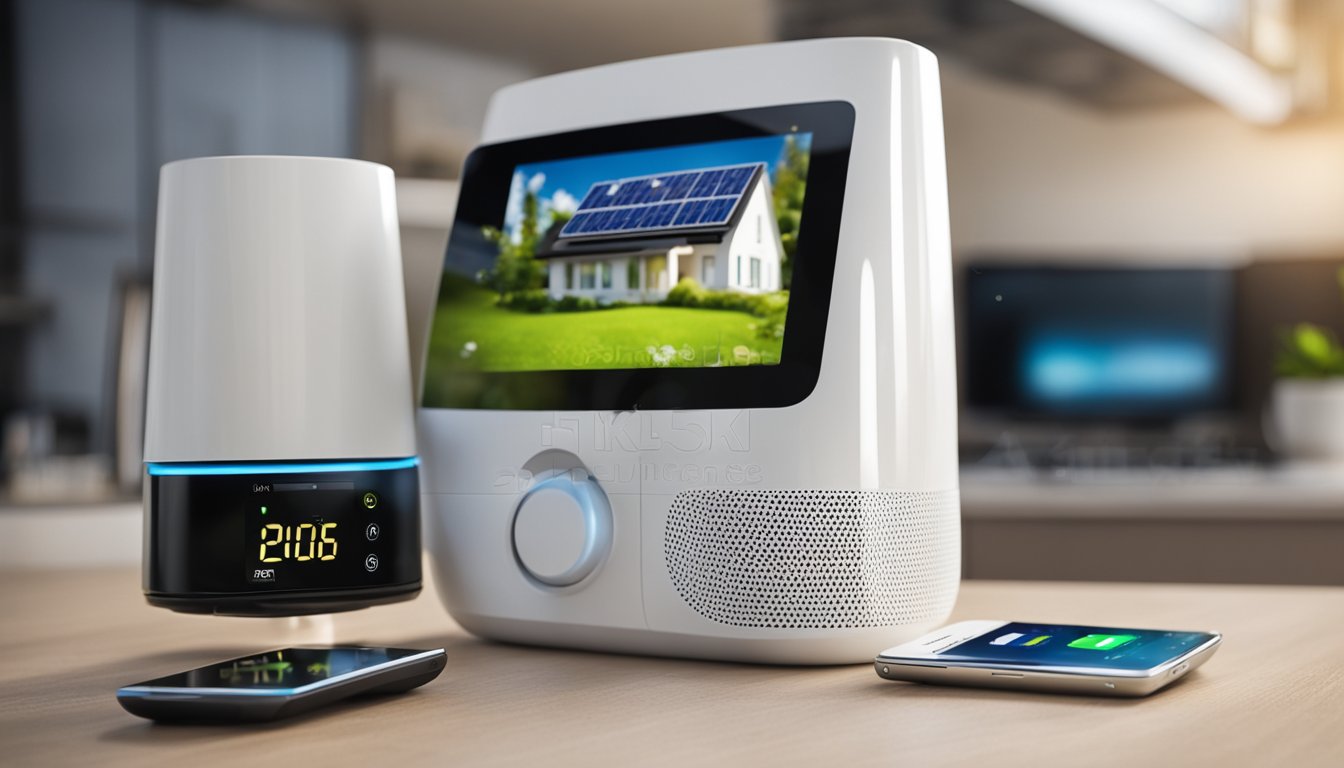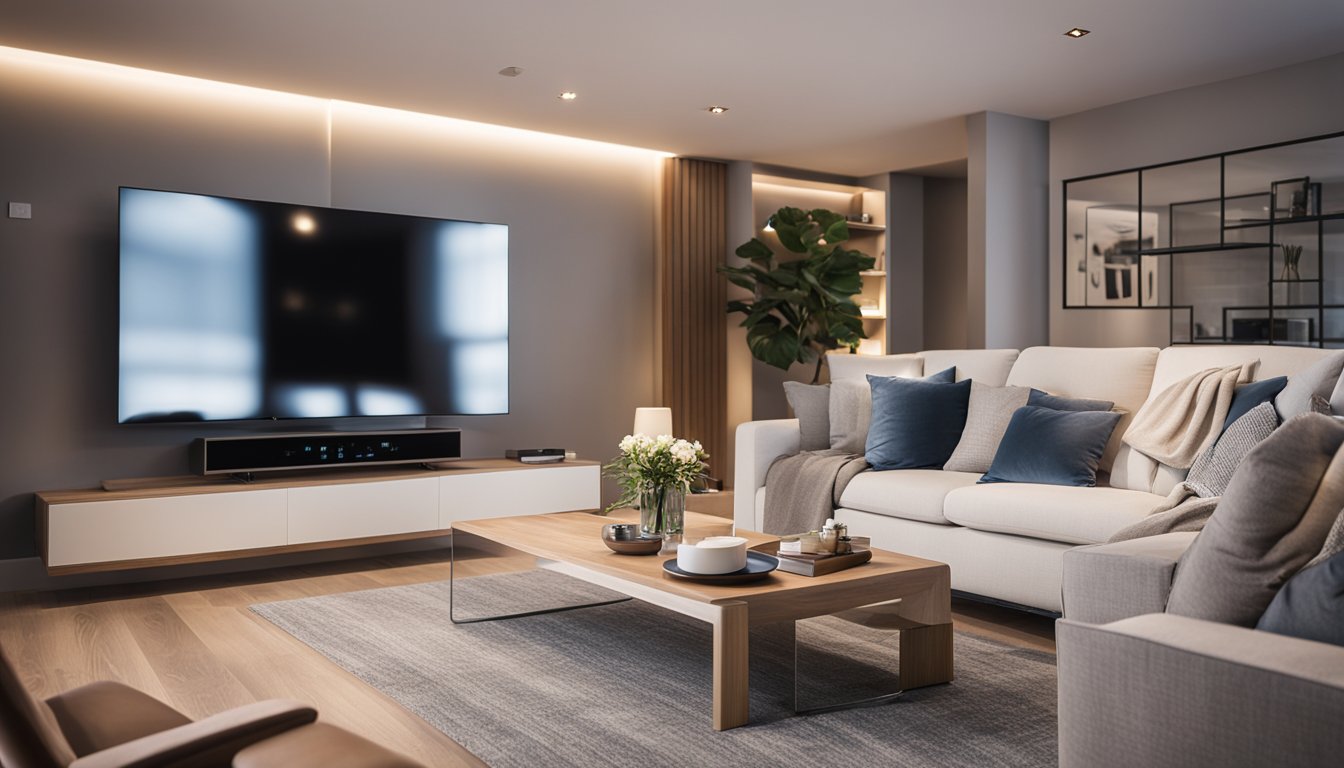Late updated: 14 Oct 2024 08:10
Written by: Eleanor Hartman
Smart Home Gadgets For Energy-Efficient UK Living: Top Picks for Sustainable Savings
The shift towards smart home technology is reshaping how we live in the UK, offering tools and solutions that significantly boost our home's energy efficiency. With the right gadgets, we not only enhance our comfort and convenience but also make a positive impact on the environment and our wallets. Energy-efficient smart home devices transform the way we manage and consume electricity and heating, leading to substantial savings and sustainability.

Imagine controlling your heating with smart thermostats that respond to your habits, or lights that adapt based on natural light availability. These technologies are not just about convenience; they're about creating a sustainable and cost-effective living environment. With a steadily growing market, incorporating these gadgets into our homes is an investment that pays dividends in energy savings and environmental benefits.
The ability of modern smart home devices to understand and respond to our needs is revolutionising household management. This trend sees the growing adoption of technologies designed to optimise energy use, offering solutions for every room and need. As we explore the essentials of energy-efficient living with smart home technologies, we’ll discover gadgets that promise both immediate and long-term benefits.
Key Takeaways
- Smart devices enhance energy efficiency and sustainability in UK homes.
- Modern gadgets offer significant cost savings and comfort improvements.
- Smart home technology is an investment in future energy management.
Energy-Efficient Smart Home Fundamentals
Energy-efficient smart homes are vital in reducing energy consumption and managing rising energy bills. Our focus is on adopting smart home technology, specifically through smart meters and smart thermostats, for effective energy management.
Understanding Smart Home Technology
Smart home technology integrates IoT capabilities to enhance energy efficiency. Devices like smart lighting and appliances communicate with each other to optimise energy usage. Through smartphone apps, we can monitor and control home systems remotely, offering convenience and energy savings.
Adopting smart gadgets ensures that energy consumption is tracked and adjusted in real-time. The strategic use of these technologies can significantly lower energy bills, a crucial benefit amidst the cost-of-living crisis. By automating repetitive tasks, smart homes make our lives more efficient and energy-conscious. These innovations not only contribute to a greener planet but also help in saving money over time.
The Role of Smart Meters in Energy Management
Smart meters provide detailed insights into energy consumption, empowering residents to make informed decisions. Automatic readings replace estimated energy bills, leading to more accurate payments based on actual usage. We gain clear visibility into when and how energy is used, enabling timely adjustments and encouraging energy-saving habits.
"Pay-as-you-go" plans eliminate surprise bills and facilitate budgeting. Smart meters also provide valuable feedback on peak energy usage periods, allowing us to shift usage to off-peak times for further cost reductions. By promoting transparency, these devices aid residents in actively managing their energy consumption patterns.
Selecting Smart Thermostats for Cost Savings
Smart thermostats are essential for controlling heating efficiently. By learning our routines, these devices automatically adjust temperatures, enhancing comfort while reducing energy waste. Users can program heating schedules or use geofencing technology to manage heating based on proximity to home.
Integration with smart home ecosystems further increases efficiency by coordinating with other devices. The option to control them via smartphone apps offers real-time adjustments for unplanned schedule changes. In addition to comfort, these thermostats deliver noticeable reductions in energy consumption, easing the burden of high energy bills.
In summary, smart thermostats are an effective tool in creating a more sustainable and cost-effective household.
Advanced Energy-Saving Gadgets and Practices

In navigating the realm of energy-efficient smart homes, we consider innovations like intelligent lighting, strategic appliance control, and advanced security integration. Such approaches significantly reduce energy and water bills while improving sustainability.
Integrating Smart Lighting Solutions
In the UK, smart lighting systems are transforming our energy consumption habits. By utilising LED light bulbs and smart bulbs, we maximise efficiency since they use less power and have a longer lifespan.
These systems allow us to program lights to adjust automatically based on natural light availability, saving energy during peak times. Motion sensors add convenience by automatically turning off lights when rooms are unoccupied.
Dimmers and customisable schedules enhance user control, cutting unnecessary costs. The latter can be controlled remotely through mobile apps, enabling management from anywhere, contributing to significant energy savings.
Leveraging Smart Plugs for Appliance Control
Smart plugs are indispensable in regulating household energy use. They allow us to manage appliances remotely, preventing wastage when devices are in standby mode. By setting schedules or using voice control with products like Amazon Alexa or Google Home, we can switch off appliances.
Smart plugs provide detailed insights into how much electricity each device uses. This data empowers us to make better decisions about unplugging or replacing high-energy use devices, potentially reducing our energy bills significantly.
The integration of these smart gadgets plays a crucial role in creating an eco-friendly home environment.
Innovative Heating and Water Bill Reduction Techniques
Adopting smart heating solutions like smart thermostats contributes to both energy efficiency and comfort. These devices learn our preferences, optimising temperature settings based on time or family routines.
We can manage temperature through smartphones for adaptable control from any location. They automatically adjust heating based on weather forecasts, saving us up to 30% on heating costs annually.
Smart meters track both water and energy usage, helping identify excessive consumption patterns. By closely monitoring these, we lower our water bills and avert unexpected high energy expenses.
Security and Efficiency: Smart Security Cameras
Smart security cameras now encompass features that promote both security and energy efficiency. They offer live video monitoring, allowing us to efficiently oversee our property.
Energy efficiency is enhanced through strategic camera placement and motion detection, which ensures cameras operate only when necessary. These unique features conserve power and extend battery life.
Some of these smart home devices integrate with lighting systems, offering comprehensive security while significantly affecting overall energy use. This dual purpose of security and energy management is vital in creating sustainable homes.
Frequently Asked Questions

Smart home technology has gained popularity in the UK for its potential to enhance energy efficiency. From smart thermostats to compatible devices with Hive systems, these innovations present promising ways to conserve energy and reduce bills.
What are the top-rated smart home devices for reducing energy bills in the UK?
In the UK, smart thermostats and smart meters are highly recommended for reducing energy bills. These devices allow us to monitor and control energy usage more efficiently. The Hive smart thermostat, for instance, claims to save users a significant amount annually. Energy-efficient practices are also supported by gadgets like smart plugs and LED lighting.
How do smart thermostats contribute to energy efficiency in British homes?
Smart thermostats help manage indoor temperatures with precision. They learn our habits and adjust heating schedules accordingly, ensuring energy is not wasted. By using mobile apps, we can control our home temperatures remotely, leading to optimised energy use. This adaptability not only enhances comfort but also reduces unnecessary heating utilisation.
Can you recommend any smart home gadgets available on Amazon that can help with energy-saving in the UK?
We suggest exploring products like smart plugs, energy-efficient LED bulbs, and smart radiator valves on Amazon UK. Devices such as the Tado smart AC control and Hive smart thermostat offer great energy-saving features. These gadgets integrate well with existing systems, allowing us to manage energy consumption effectively via apps.
What impact do smart home technologies have on energy consumption in UK households?
Smart home technologies significantly contribute to reduced energy consumption by offering detailed insights into our usage patterns. Devices like smart meters provide real-time data, allowing us to identify areas where we can cut down. By optimising energy use, these technologies not only lower bills but also support environmental sustainability.
Which smart gadgets are compatible with the Hive Thermostat system for energy management?
Many smart home gadgets can be integrated with the Hive Thermostat for enhanced energy management. Smart plugs and Wi-Fi enabled light bulbs are popular choices. Additionally, motion sensors and smart cameras from the Hive ecosystem can work together to improve efficiency and provide enhanced control over home energy systems.
In terms of energy conservation, what smart home devices are considered essential for a UK home?
For effective energy conservation, smart meters and thermostats are essential. These devices offer precise control over energy usage. Also important are energy-efficient lighting solutions like LED bulbs, and smart plugs to manage plugged-in devices. Incorporating these into our homes allows us to optimise energy utilisation while keeping costs in check.